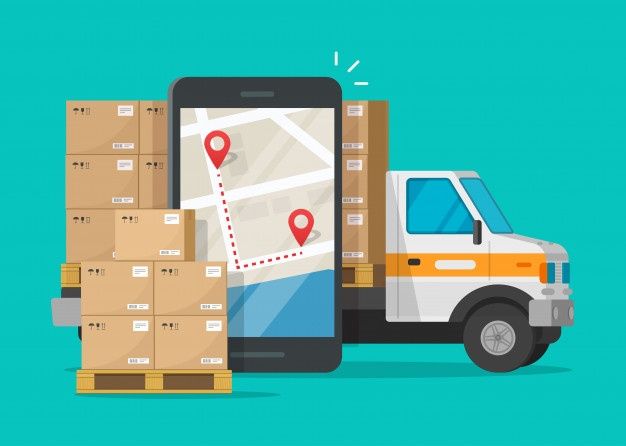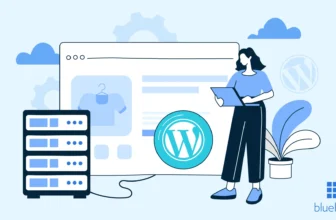
In recent years, fleet management has undergone a technological revolution. What was once a manual, paperwork-heavy process has now evolved into a data-driven, automated ecosystem thanks to connected vehicle technologies. As we move into 2025, the concept of a connected vehicle ecosystem is no longer just a buzzword—it’s a necessity for organizations aiming to streamline operations, enhance safety, and maximize efficiency in transportation and logistics.
At the center of this transformation lies fleet management app development, which integrates real-time data from vehicles, drivers, and operations into a unified platform. Fleet managers can now monitor everything from vehicle diagnostics to driver performance, all while optimizing routes and reducing costs. This synergy between connected vehicles and advanced apps is pushing businesses to partner with experienced fleet management app development companies that can design robust and scalable solutions for their unique needs.
In this article, we’ll explore how connected vehicle ecosystems are shaping fleet app development in 2025, their key benefits, and why investing in custom fleet management app development is critical for staying competitive in a rapidly evolving industry.
What Is a Connected Vehicle Ecosystem?
A connected vehicle ecosystem refers to a network of vehicles, devices, applications, and cloud services that communicate in real time. These systems utilize Internet of Things (IoT) devices, telematics, GPS trackers, onboard diagnostics (OBD-II), and wireless communication protocols to share data across various stakeholders.
For fleet management, this ecosystem creates a single source of truth where:
-
Vehicles send real-time data on location, speed, fuel consumption, and health.
-
Drivers receive insights for safer and more efficient driving.
-
Fleet managers monitor entire operations on a centralized platform.
This interconnected approach allows organizations to shift from reactive management to predictive, proactive decision-making.
Why Connected Vehicles Are a Game-Changer for Fleet Management
1. Real-Time Visibility
In traditional fleet operations, delays in reporting could cause inefficiencies and increased operational costs. With connected vehicles, real-time tracking allows managers to know where each vehicle is, what it’s doing, and when it will reach its destination. This visibility significantly reduces downtime and improves overall coordination.
2. Predictive Maintenance
Connected vehicles continuously transmit diagnostics and performance data. Fleet apps can analyze this data to detect potential issues before they lead to costly breakdowns. This predictive approach, powered by fleet management software development, extends vehicle lifespans and minimizes disruptions in service.
3. Enhanced Driver Safety
Driver safety is paramount in fleet operations. Connected ecosystems track driver behavior, such as speeding, harsh braking, or fatigue. The fleet app can then provide feedback or alerts, enabling managers to enforce safety protocols and reduce accident risks.
4. Cost Optimization
From fuel efficiency to optimized routes, connected vehicles provide actionable insights that significantly cut operating costs. In 2025, custom fleet management app development solutions are leveraging AI and machine learning to analyze patterns and deliver smarter cost-saving recommendations.
How Connected Vehicle Ecosystems Are Influencing Fleet App Development
Fleet management apps in 2025 are far more advanced than their predecessors. They are no longer just GPS tracking tools; they are comprehensive platforms that bring together the entire connected vehicle ecosystem. Here’s how they are evolving:
Integration of IoT & Telematics
IoT devices installed in vehicles relay detailed metrics on vehicle performance, environmental conditions, and driver habits. Fleet management app development companies now focus on building platforms that integrate seamlessly with telematics systems, offering insights like engine diagnostics, tire pressure monitoring, and cargo conditions.
AI-Powered Analytics
Artificial intelligence is transforming the way fleet data is used. Instead of just collecting data, apps can now predict patterns—like which routes are most efficient during certain times or when a vehicle is likely to require servicing. This makes custom fleet management app development invaluable for organizations needing tailored predictive analytics.
Cloud-First Architectures
Modern fleet apps use cloud technology to handle the massive amounts of data generated by connected vehicles. This ensures accessibility from anywhere, supporting large-scale fleet operations spread across multiple geographies.
User-Centric Interfaces
Fleet apps now cater to various user roles—drivers, managers, and even clients. Intuitive dashboards and role-based access make it easier for everyone involved to access the right information at the right time.
Key Features of a Connected Fleet Management App in 2025
The integration of connected vehicle ecosystems has expanded the feature set of fleet management apps significantly. Some must-have features include:
-
Live Vehicle Tracking: Monitor real-time locations and routes.
-
Predictive Maintenance Alerts: Receive early warnings for vehicle servicing needs.
-
Driver Behavior Analytics: Identify unsafe practices and improve performance.
-
Fuel Management Tools: Track and optimize fuel consumption.
-
Route Optimization: Reduce delivery times with AI-generated routing suggestions.
-
Compliance Management: Automate regulatory compliance and reporting.
These features are now standard in apps developed by leading fleet management software development providers.
The Role of Fleet Management App Development Companies
Developing a connected fleet app requires more than just coding—it demands deep industry knowledge and technical expertise in IoT, AI, and big data. A skilled fleet management app development company can help organizations:
-
Build scalable solutions for small, medium, and large fleets.
-
Integrate third-party systems like ERPs, CRMs, or telematics platforms.
-
Create custom fleet management app development solutions aligned with business goals.
-
Ensure data security and compliance with industry standards.
Choosing the right development partner ensures that your fleet app is future-proof, user-friendly, and capable of adapting to evolving technological trends.
Why Custom Fleet Management App Development Matters
Every fleet operation is unique. Off-the-shelf solutions may not meet the complex requirements of businesses operating in logistics, construction, public transportation, or field services. Custom fleet management app development allows organizations to:
-
Add features specific to their operations.
-
Integrate with existing business tools and workflows.
-
Scale functionalities as the fleet grows.
-
Leverage analytics tailored to their KPIs.
This flexibility is essential for companies looking to maximize ROI and gain a competitive edge.
Conclusion
Connected vehicle ecosystems are no longer optional—they are redefining how fleets are managed in 2025. From real-time visibility to predictive analytics, they empower organizations to make smarter, faster, and safer decisions. For businesses aiming to stay ahead in this dynamic landscape, partnering with an experienced fleet management app development company is critical.
By investing in fleet management software development and embracing custom fleet management app development, organizations can unlock unparalleled efficiency, ensure driver safety, and optimize costs. As the connected vehicle ecosystem continues to grow, the future of fleet management lies in apps that are smarter, more integrated, and deeply aligned with the needs of modern businesses.







